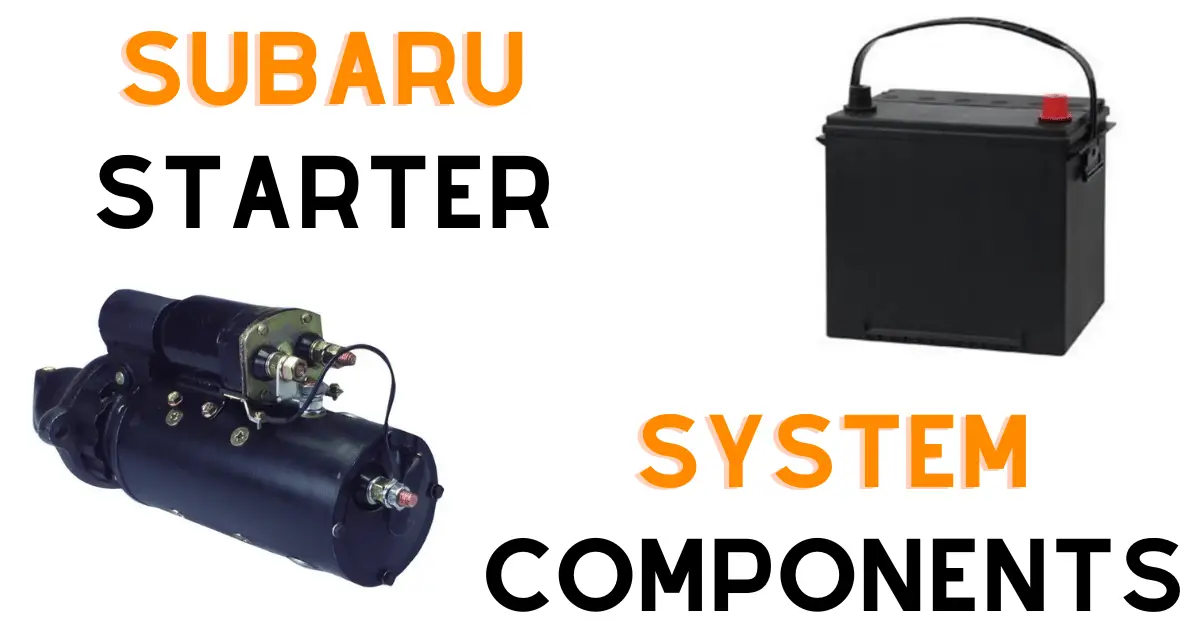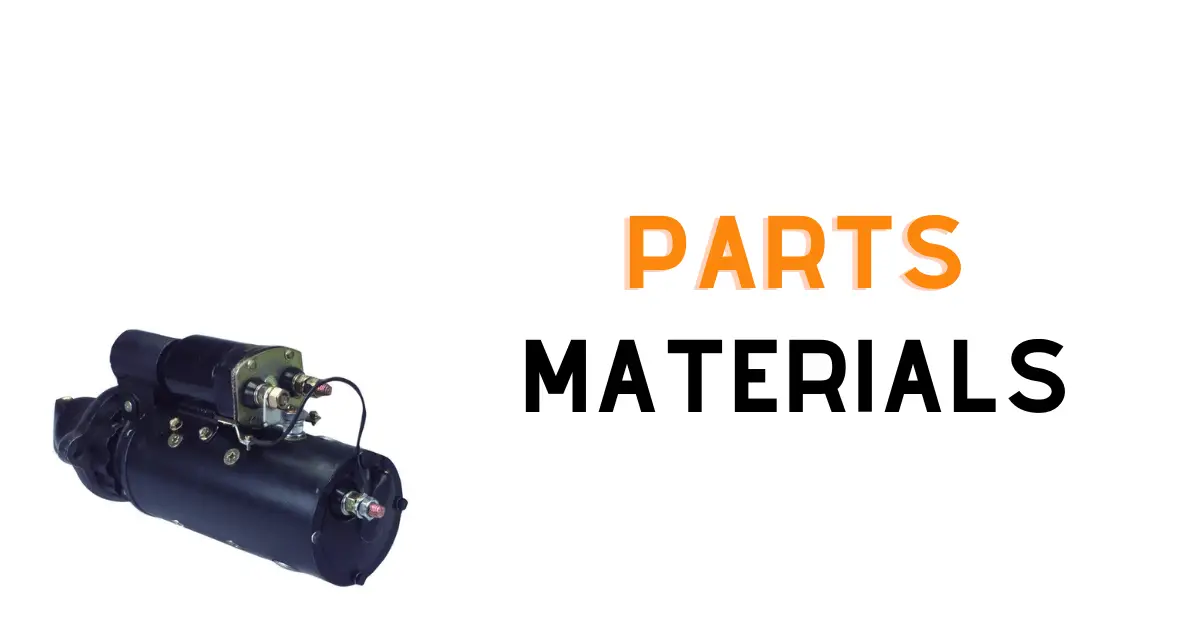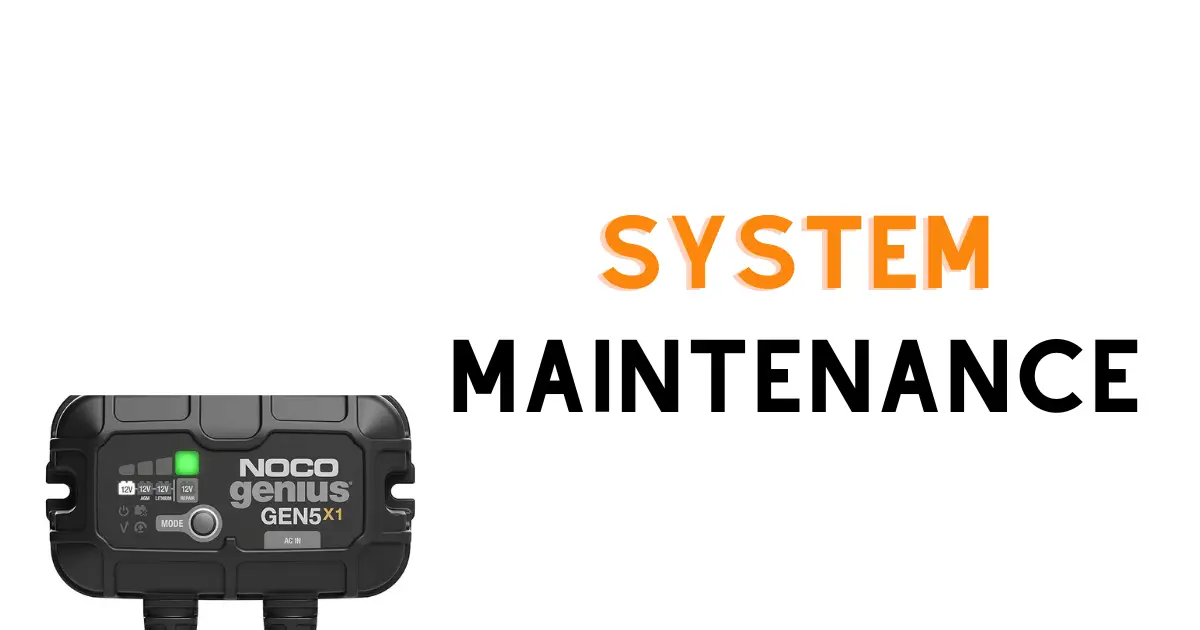The cost of replacing a Subaru starter can fluctuate based on multiple considerations. The price tag for a new starter on a Subaru may span from $150 to beyond $1,100, dictated by the make, model, and manufacturing year of the car. Labor expenses can tack on another $95 to $152, and there might be applicable taxes and fees.
It is important to note that the cost of a Subaru starter replacement can vary depending on the location and the mechanic performing the work. It is recommended to obtain multiple quotes from reputable mechanics to ensure a fair price. Additionally, it may be possible to save money by purchasing a refurbished starter rather than a new one.
Overall, the cost of a Subaru starter replacement can be a significant expense for vehicle owners. However, with proper research and preparation, it is possible to find a fair price and ensure reliable performance for years to come.
Related reads:
– Are Subarus Expensive To Fix and Maintain? Yes and No
– Subaru Clutch Replacement Cost: What You Need to Know
– Subaru Transmission Replacement Cost: What You Need to Know
Understanding Starter Replacement
Replacing a starter is a common repair that many car owners face at some point. The starter is a critical component of the vehicle’s ignition system, responsible for cranking the engine and getting it running. Over time, starters can wear out or fail, requiring replacement. In this section, we’ll take a closer look at the components of a starter system and the signs of a failing starter.
What Are The Components of a Starter System?

A starter system consists of several components that work together to get the engine running. The main components of a starter system include:
- Starter Motor: The starter motor is the primary component of the starter system. It is responsible for cranking the engine and getting it started.
- Solenoid: The solenoid is an electromagnet that engages the starter motor’s gear with the engine’s flywheel.
- Battery: The battery provides the electrical power needed to operate the starter motor and other electrical systems in the vehicle.
- Ignition Switch: The ignition switch is used to turn on the starter system and start the engine.
What Are The Most Common Signs of A Failing Starter?
A faulty starter can cause a range of issues, including difficulty starting the engine, strange noises, and even complete starter failure. Here are some common signs of a failing starter:
- Clicking Sound: If you hear a clicking sound when you turn the key, it could indicate a faulty starter. This sound is often caused by a weak battery or a bad connection, but it can also be a sign of a failing starter.
- Grinding Noise: A grinding noise when starting the engine is a sign that the starter motor’s gears are not engaging correctly with the flywheel. This can be caused by worn gears or a damaged solenoid.
- Slow Cranking: If the engine cranks slowly or takes a long time to start, it could be a sign of a weak or failing starter motor.
- Starter Failure: If the starter motor fails completely, the engine will not start at all.
In summary, the starter is a critical component of the vehicle’s ignition system, responsible for cranking the engine and getting it running. A faulty starter can cause a range of issues, including difficulty starting the engine, strange noises, and even complete starter failure. If you notice any of the signs of a failing starter, it’s important to have your vehicle inspected by a qualified mechanic to determine the cause of the problem and to get it fixed promptly.
What’s The Starter Replacement Process Like?
When it comes to replacing a Subaru starter, there are a few key steps that a mechanic will take to ensure that the job is done correctly. This section will cover the three main stages of the replacement process: inspection and diagnosis, the replacement procedure, and post-replacement inspection.
Inspection and Diagnosis
Before any replacement or repair work can be done, the mechanic will need to inspect the vehicle thoroughly to determine the cause of the problem. This will typically involve a visual inspection of the starter, flywheel, bolts, ignition switch, and neutral safety switch, as well as a diagnostic test to identify any mechanical faults.
Once the mechanic has identified the problem, they will be able to determine whether a replacement or repair is necessary. If a replacement is required, they will need to order the appropriate parts and tools before proceeding with the replacement procedure.
Related read: Subaru Dashboard Lights And Meanings
The Replacement Procedure
The replacement procedure itself is relatively straightforward, but it does require a certain level of skill and experience. The mechanic will need to disconnect the battery, remove the starter motor, and install the new starter. Depending on the make and model of the vehicle, they may also need to remove the transmission or other components to gain access to the starter.
During the replacement procedure, the mechanic will need to take care to ensure that all bolts and connections are properly tightened and that the starter is aligned correctly. They will also need to test the new starter to ensure that it is functioning properly before moving on to the next stage.
Post-Replacement Inspection
Once the replacement procedure is complete, the mechanic will need to perform a thorough inspection of the vehicle to ensure that everything is working as it should. This will typically involve testing the ignition switch, neutral safety switch, and other components to ensure that they are functioning properly.
If any issues are found during the post-replacement inspection, the mechanic will need to address them before returning the vehicle to the owner. This may involve additional repairs or adjustments to ensure that the vehicle is safe and reliable.
Overall, replacing a Subaru starter is a relatively straightforward process that can be completed by a skilled mechanic. By following the steps outlined above, the mechanic can ensure that the replacement is done correctly and that the vehicle is safe and reliable for the owner.
What Cost Factors To Consider for Subaru Starter Replacement?
When it comes to replacing a starter in a Subaru, there are several factors that can affect the total cost of the job. These factors include labor costs, parts and materials, and any additional services that may be required during the replacement process.
Labor Costs
One of the biggest factors that can affect the cost of replacing a starter in a Subaru is the labor involved. The amount of time it takes to replace a starter can vary depending on the make and model of the vehicle, as well as the experience level of the professional mechanic performing the job. Generally, labor costs for starter replacement can range from $95 to $152.
Parts and Materials

The cost of the parts and materials required for a starter replacement can also vary depending on the make and model of the Subaru. OEM starters tend to be more expensive than aftermarket options, but they may also come with a warranty that can provide peace of mind. The cost of a new starter can range from $153 to $448, depending on the type of starter and the seller.
Additional Services
In some cases, additional services may be required during the starter replacement process. For example, if the battery is old or weak, it may need to be replaced at the same time as the starter. Other services that may be required include electrical testing and maintenance. These services can add to the overall cost of the job, so it’s important to get an upfront pricing estimate from a reputable shop or dealer.
Overall, the cost of replacing a starter in a Subaru can vary depending on a number of factors. By understanding the cost factors involved, vehicle owners can get a better idea of what to expect when it comes to starter replacement costs and can make informed decisions about maintenance and repairs.
Related read: Is It Worth Fixing Subaru Gaskets? Yes and No (Here’s Why)
Choosing the Right Service Provider
When it comes to replacing the starter of your Subaru, choosing the right service provider can make a significant difference in terms of cost, quality, and convenience. Here are some factors to consider when selecting a service provider:
Dealership vs. Independent Mechanic
Dealerships are often the first choice for Subaru owners when it comes to repairs and maintenance. However, dealership services can be expensive due to the high overhead costs associated with running a dealership. On the other hand, independent mechanics may offer more competitive prices while still providing quality service.
It is important to note that dealerships may have access to the latest diagnostic tools and equipment, as well as factory-trained technicians. This can be an advantage when dealing with complex repairs or warranty claims. However, independent mechanics can also be highly skilled and experienced, especially if they specialize in Subaru repairs.
Certified Mobile Mechanics
Certified mobile mechanics offer a convenient alternative to traditional repair shops. They can come to your location and perform the necessary repairs on-site, saving you time and hassle. Autonation Mobile Service and Delivery Mechanics are two examples of certified mobile mechanics that offer Subaru starter replacement services.
Experienced mobile mechanics can also be a good option, especially if they have a proven track record of providing quality service. However, it is important to ensure that the mobile mechanic is licensed and insured, and that they have the necessary tools and equipment to perform the repair.
In summary, choosing the right service provider for your Subaru starter replacement can save you money, time, and hassle. Consider factors such as cost, quality, convenience, and expertise when making your decision.
How Maintain Your Subaru’s Starting System

Keeping your Subaru’s starting system in good condition is crucial to ensure that your vehicle starts reliably every time. Regular maintenance and proper care are essential to keep the starter motor and other components working correctly. This section covers some of the essential aspects of maintaining your Subaru’s starting system.
And, it helps to have a healthy battery. A battery that firmly cranks the car will help preserve the starter over the long run. This can be accomplished using a standard battery charger, or battery tender, like some of these options to consider:
– NOCO GEN Vs. GX: Which Battery Charger Should You Choose?
– NOCO Genius Vs. Genius PRO: Which Is The Better Battery Charger Series?
– NOCO GB50 vs. GB40 vs. GB70: Choose the best jump starter for your road trip
– Clore Automotive JNC660 vs JNC770 vs JNC950: A close comparison & review
– Best Schumacher Jump Starters (Review and Buying Guide)
– Schumacher SC1280 vs SC1281 vs SC1285: Who’s the “sTRUEmacher” charger?
– 3 Best CTEK battery chargers for car
Regular Maintenance
Regular maintenance is crucial to keep your Subaru’s starting system in good condition. It is recommended to have your vehicle undergo a safety inspection every 12,000 miles or once a year, whichever comes first. During this inspection, the mechanic will check the starter motor, wiring, relays, fuses, and other components to ensure they are working correctly.
Additionally, it is recommended to have your Subaru undergo a free 50-point safety inspection, which includes a diagnostic test of the starter motor and other components. This inspection can help identify any potential issues before they become more severe and costly to repair.
Warranty and Aftercare
Subaru offers a 12,000-mile warranty on all its vehicles, which covers the starter motor and other engine components. This warranty can provide peace of mind knowing that your vehicle is protected in case of any issues.
Moreover, Subaru provides quality service and aftercare to ensure that your vehicle is safe to drive and running smoothly. If you suspect any issues with your starter motor or other components, it is recommended to book a car service estimate with a Subaru mechanic as soon as possible to avoid any further damage.
If you are a DIY enthusiast, you can also consider rebuilding parts of your starter motor or other components. However, it is essential to ensure that you have the necessary skills and knowledge to undertake this project safely. Otherwise, it is recommended to seek the services of a qualified mechanic to avoid any potential safety risks.
In conclusion, maintaining your Subaru’s starting system is crucial to ensure that your vehicle starts reliably every time. Regular maintenance and proper care can help identify any potential issues before they become more severe and costly to repair. Subaru also provides quality service and aftercare to ensure that your vehicle is safe to drive and running smoothly.
Frequently Asked Questions
The average labor cost for a Subaru starter replacement ranges from $150 to $500. However, the cost may vary depending on the location, model, and year of the vehicle.
It is possible to replace a Subaru starter on your own if you have the necessary mechanical skills and tools. The tools required include a socket set, pliers, a wrench, and a jack. However, it is recommended that you seek the services of a professional if you are not experienced in replacing starters.
Several factors influence the total cost of replacing a Subaru starter, including the model and year of the vehicle, the location of the repair shop, and the type of starter used. Additionally, the cost may also vary depending on whether you choose to replace or repair the starter.
Aftermarket starter prices are generally lower than dealership prices for Subaru models. However, it is recommended that you purchase starters from reputable dealers to ensure you get high-quality products.
In some cases, it may be more cost-effective to repair a Subaru starter rather than replace it. However, this depends on the extent of the damage and the cost of the repair. It is recommended that you consult a professional mechanic to determine whether to repair or replace your starter.
The lifespan of a Subaru starter varies depending on the model and year of the vehicle, as well as the frequency of use. However, on average, a Subaru starter can last between 100,000 and 150,000 miles before needing replacement.